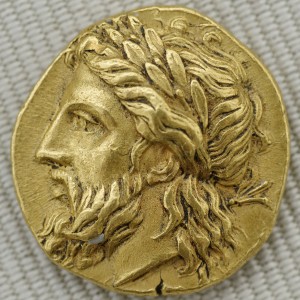 On Monday, gold rose as uncertainties continued to pile up on whether or not a deal would be reached regarding Greece and their €172bn bailout. Eurozone finance ministers met in Brussels to discuss matters while gold rose 0.3 percent to $1,231.80, netting its third trading day of gains.
On Monday, gold rose as uncertainties continued to pile up on whether or not a deal would be reached regarding Greece and their €172bn bailout. Eurozone finance ministers met in Brussels to discuss matters while gold rose 0.3 percent to $1,231.80, netting its third trading day of gains.
The precious yellow metal is up 4 percent this year even with looming questions from investors on whether the world’s central banks can avoid deflation as global growth slows. And as a non-yielding asset, holding gold is becoming a more appealing insurance investment as talks around Greece and their financial struggles begin to tense up.
“The meeting provides support because although Greece is a small part of the Eurozone economy, it is unchartered territory, so there is always potential for mistakes to be made by policy makers,” said Matthew Turner, an analyst for Macquarie. “That leads into what supports gold investments, the uncertainty, and fear of monetary authorities not being in control.”
The expiration date for Greece’s rescue program is scheduled for Feb. 28th, and would leave Athens without an EU financial backstop. Eurozone finance ministers noted that the likelihood of an agreement is doubtful and that more negotiations will be required throughout the week.
Due to the President’s Day holiday, the US markets were closed, while China’s Lunar New Year holiday is scheduled for this coming Wednesday. Physical demand for gold has slumped despite the yellow metal’s rally this year. Chinese and Indian consumption, the two largest consumers of the precious metal, hasn’t taken off as expected and continues to play a similar hand as it did on last year’s 4 percent fall in demand. “For gold to sustain its gains, it needs the support of the wider investor community or a firming physical footing to build from,” as noted by Barclays.
In India, customs data reported gold imports from January were at 38 tons, a substantially lower figure than the 80 ton average from the second half of last year. But these most recent figures out of India reflect the aftermath of large imports from October and November, and that there is already a considerable amount of gold in the country.

















